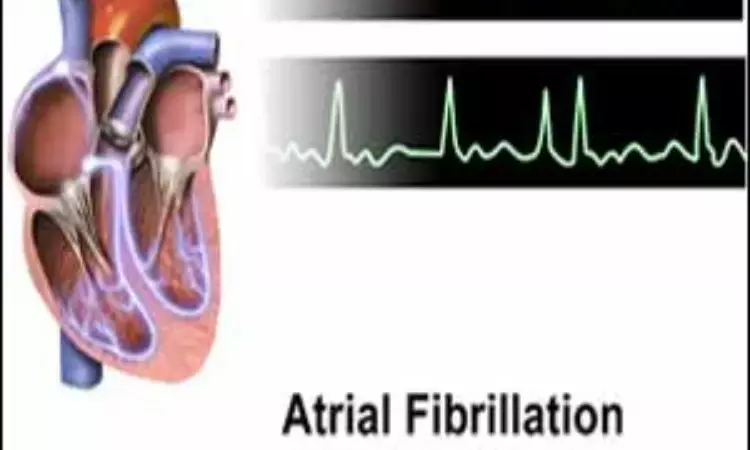- Home
- Medical news & Guidelines
- Anesthesiology
- Cardiology and CTVS
- Critical Care
- Dentistry
- Dermatology
- Diabetes and Endocrinology
- ENT
- Gastroenterology
- Medicine
- Nephrology
- Neurology
- Obstretics-Gynaecology
- Oncology
- Ophthalmology
- Orthopaedics
- Pediatrics-Neonatology
- Psychiatry
- Pulmonology
- Radiology
- Surgery
- Urology
- Laboratory Medicine
- Diet
- Nursing
- Paramedical
- Physiotherapy
- Health news
- Fact Check
- Bone Health Fact Check
- Brain Health Fact Check
- Cancer Related Fact Check
- Child Care Fact Check
- Dental and oral health fact check
- Diabetes and metabolic health fact check
- Diet and Nutrition Fact Check
- Eye and ENT Care Fact Check
- Fitness fact check
- Gut health fact check
- Heart health fact check
- Kidney health fact check
- Medical education fact check
- Men's health fact check
- Respiratory fact check
- Skin and hair care fact check
- Vaccine and Immunization fact check
- Women's health fact check
- AYUSH
- State News
- Andaman and Nicobar Islands
- Andhra Pradesh
- Arunachal Pradesh
- Assam
- Bihar
- Chandigarh
- Chattisgarh
- Dadra and Nagar Haveli
- Daman and Diu
- Delhi
- Goa
- Gujarat
- Haryana
- Himachal Pradesh
- Jammu & Kashmir
- Jharkhand
- Karnataka
- Kerala
- Ladakh
- Lakshadweep
- Madhya Pradesh
- Maharashtra
- Manipur
- Meghalaya
- Mizoram
- Nagaland
- Odisha
- Puducherry
- Punjab
- Rajasthan
- Sikkim
- Tamil Nadu
- Telangana
- Tripura
- Uttar Pradesh
- Uttrakhand
- West Bengal
- Medical Education
- Industry
Dabigatran as good as Warfarin for prevention of cognitive decline in elderly with AF

DALLAS - The anticoagulant medication dabigatran yielded similar results to warfarin for the prevention of cognitive decline in older adults with atrial fibrillation after two years of treatment, according to late-breaking research presented today at the American Heart Association's Scientific Sessions 2021.
Atrial fibrillation is the most common cardiac arrhythmia in older adults, and it is associated with an increased risk of stroke, cognitive impairment and dementia. Stroke can occur when a blood clot blocks blood flow to the brain, and oral anticoagulants, or medications that prevent the formation of blood clots such as dabigatran and warfarin, are typically prescribed to prevent stroke. Dabigatran has been found to be comparable to warfarin for the prevention of stroke and also has a lower risk of major bleeding complications.
Previous research has found that people with atrial fibrillation taking oral anticoagulation therapy have a lower risk of dementia, however, the mechanism involved in this benefit is unknown, and previous clinical trials have not evaluated cognitive and functional impairment outcomes among patients.
"It's possible that cognitive decline is related to the formation of small blood clots in the brain, which may be attacked by effective medications that prevent blood clots," said lead study author Bruno Caramelli, M.D., associate professor of medicine at the University of Sao Paulo in Brazil. "Since dabigatran offers a more stable anticoagulation status, we investigated whether it may be more effective than warfarin for the prevention of cognitive decline in patients with atrial fibrillation."
The study, known as GIRAF, (acronym for CoGnitive Impairment Related to Atrial Fibrillation) is a two-year randomized, multi-center, prospective trial in Brazil evaluating the effects of dabigatran and warfarin on cognitive and functional impairment, bleeding occurrence and cerebrovascular complications in older patients with atrial fibrillation.
This study included 200 adults over age 70 with confirmed atrial fibrillation, and about 62% of the study participants were male. Participants were randomly assigned to take dabigatran (110 or 150 mg twice daily) or warfarin (once daily, dose controlled based on how long it takes the blood to clot) for two years. Patients also had a brain MRI at baseline and after two years to identify possible strokes.
Participants completed 90-minute cognitive and functional evaluations at the one-year and two-year follow-up visits. Another MRI was performed at the end of the two-year study period to identify possible cerebrovascular events.
The researchers found that after two years:
- no participant was diagnosed with dementia during the trial, and,
- among the entire study population, there was less than a half point difference (statistically not significant) between study participants taking warfarin and those taking dabigatran on scales measuring memory, executive functions, language and attention from baseline.
These findings highlight the importance of adequate anticoagulation treatment to decrease cognitive decline in older atrial fibrillation patients. In addition, the GIRAF researchers concluded that among older patients with atrial fibrillation who were adequately treated with warfarin or dabigatran, there was no difference in cognitive outcomes after two years of treatment.
"Cognitive aspects are important for patients with atrial fibrillation, and these results could help guide the decision about which oral anticoagulation medication should be prescribed," Caramelli said. "Further studies are needed to explore new concepts on potential prevention of cognitive decline and the possible benefits of treatment for patients with atrial fibrillation and their families
Hina Zahid Joined Medical Dialogue in 2017 with a passion to work as a Reporter. She coordinates with various national and international journals and association and covers all the stories related to Medical guidelines, Medical Journals, rare medical surgeries as well as all the updates in the medical field. Email: editorial@medicaldialogues.in. Contact no. 011-43720751
Dr Kamal Kant Kohli-MBBS, DTCD- a chest specialist with more than 30 years of practice and a flair for writing clinical articles, Dr Kamal Kant Kohli joined Medical Dialogues as a Chief Editor of Medical News. Besides writing articles, as an editor, he proofreads and verifies all the medical content published on Medical Dialogues including those coming from journals, studies,medical conferences,guidelines etc. Email: drkohli@medicaldialogues.in. Contact no. 011-43720751


